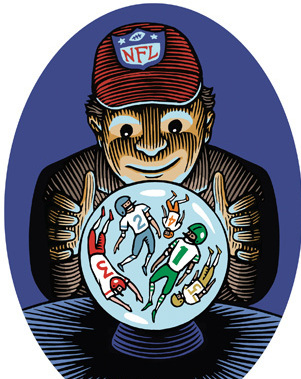 loading
loading
FindingsBad calls Gregory NemecView full image
Nineteen eighty-three was a great year for quarterbacks. In the NFL draft that year, teams had the choice of John Elway (pick 1), Jim Kelly (pick 14), and Dan Marino (pick 27), all promising professional rookies who went on to be Hall of Famers. But if you think the lesson of that draft is that NFL teams excel at predicting who will perform at the sport’s highest level, you’d be wrong, says Cade Massey, an assistant professor of organizational behavior at SOM. He points to draft picks 7 and 15—also quarterbacks—who had unexceptional careers despite being picked over Marino. “Everyone names that draft as a great quarterback draft, but they aren’t getting the big message—which is, it’s hard to predict,” Massey says. He and a coauthor analyzed years of performance data on draft picks and determined that, across the board, teams are lousy at predicting which players will be stars and which will be also-rans. But NFL teams don’t seem to realize how bad their own forecasts are. According to the study data, teams vastly overpay for the privilege of picking earlier; they will trade away multiple low picks to get their favored player—even though the odds of benefitting on an early pick are only slightly better than a coin toss. The research underlines a much-studied phenomenon in psychology and behavioral economics: overconfidence. Research shows that people consistently overrate their own abilities. The same behavior that leads football scouts to overpay for this year’s college star can lead stock traders to bet everything on an attractive deal, or companies to pay a high salary to their preferred CEO when a cheaper one might do just as good a job. As Massey points out, no couple ever admits that their impending marriage has only a 50 percent chance of success. Massey has been advising football teams to trade away their first-round picks for lots of lower ones, thereby increasing the number of coin tosses they get. He says the few teams that already employ that strategy win more games than their peers. But not many others have shown interest in his findings. One team employee told Massey that the team’s owner “believes you—he just doesn’t think it applies to him.”
The comment period has expired.
|
|